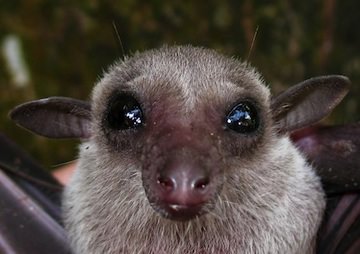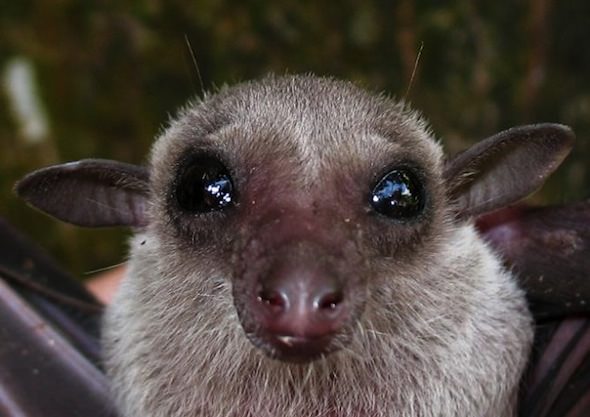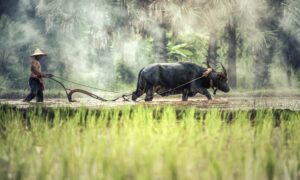Climate Cranks Up Extinction Threat to Borneo Mammals
Endangered species in one of the world’s biodiversity hotspots face even greater peril as climate change adds to loss of habitat caused by deforestation.
By Tim Radford, Climate News Network

The greater nectar bat, an endangered species found only in Borneo and in parts of the Philippines. Photo by Matthew Struebig/DICE, University of Kent
This Creative Commons-licensed piece first appeared at Climate News Network.
LONDON — One in three of the mammal species of Borneo could see their habitat reduced by a third by 2080 — just because of climate change alone.
Given that the rainforests of Borneo are right now also being felled, burned and converted to commercial plantation, nearly half of all mammal species will lose more than a third of their remaining home range within the next 65 years.
Among the first to feel the heat will be those species that are already endangered — creatures such as the greater nectar bat, the otter civet, and the flat-headed cat.
Conservation challenge
Matthew Struebig, a tropical ecologist at the University of Kent, in the UK, and colleagues report in the journal Current Biology that they considered the challenge of conservation in one of the world’s great biodiversity hotspots — but which is also under pressure from population growth, economic expansion and continued pressure on the last stands of one of the world’s great forests.
The researchers assembled a comprehensive map and inventory of data for 13 species of primate, 23 carnivores and 45 kinds of bat. Altogether, they examined 6,921 records and observations.
“Only a modest amount of additional land . . . would be needed outside of existing reserves to safeguard many mammal species”
They developed a framework to model the amount of suitable habitat that each of their 81 species needed, and tried to identify the forest land that — if saved from the woodsman’s axe — would be best suited as a natural reserve for that species.
Then they set about incorporating future conditions, dependent on different climate data. They ended up with eight versions for each species: a total of 4,698 maps describing the habitats of the large and small animals that swing through the tree canopy, nest in tree trunks, or hunt among the roots and underbrush.
It was calculated that somewhere between 11% and 36% of the island’s mammal species would lose 30% of their habitat by 2080, and the ecological conditions that suited them best would move uphill by between 23% and 46%, as global climate warmed because of greenhouse gas emissions.
Commercial pressures
Deforestation — which happens because of economic and commercial pressures, and is independent of climate change — would make things worse, so that 30% to 49% would lose a significant slice of living space.
Warnings like these are intended to prevent extinction — to preserve some of the remarkable fruits of millions of years of evolution — and the researchers will be presenting their findings to the governments of Indonesia, Malaysia and Brunei.
“Only a modest amount of additional land on Borneo — about 28,000 square kilometres, or 4% of the island — would be needed outside of existing reserves to safeguard many mammal species against threats from deforestation and climate change,” Dr Struebig says.
Your support matters…Independent journalism is under threat and overshadowed by heavily funded mainstream media.
You can help level the playing field. Become a member.
Your tax-deductible contribution keeps us digging beneath the headlines to give you thought-provoking, investigative reporting and analysis that unearths what's really happening- without compromise.
Give today to support our courageous, independent journalists.






You need to be a supporter to comment.
There are currently no responses to this article.
Be the first to respond.